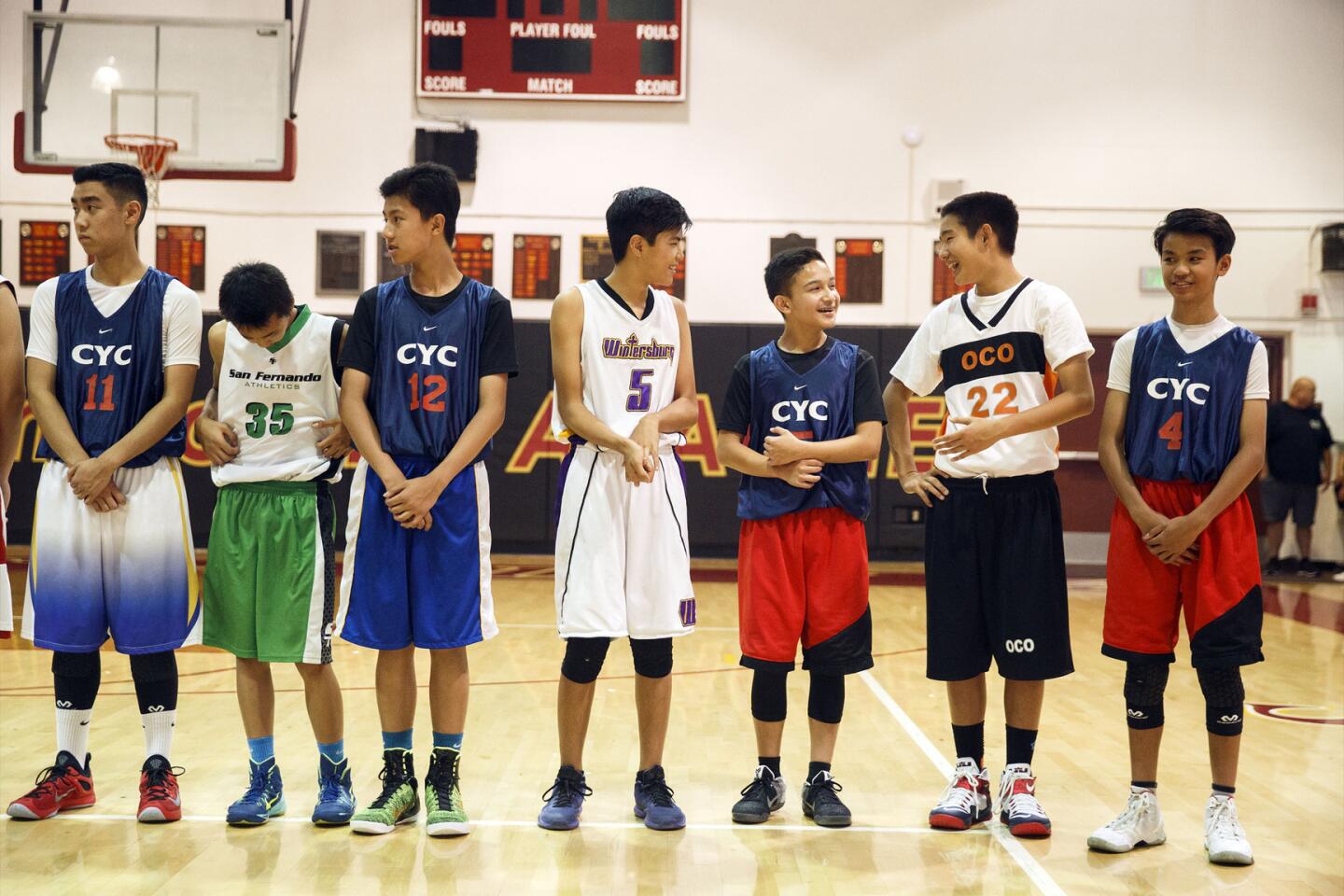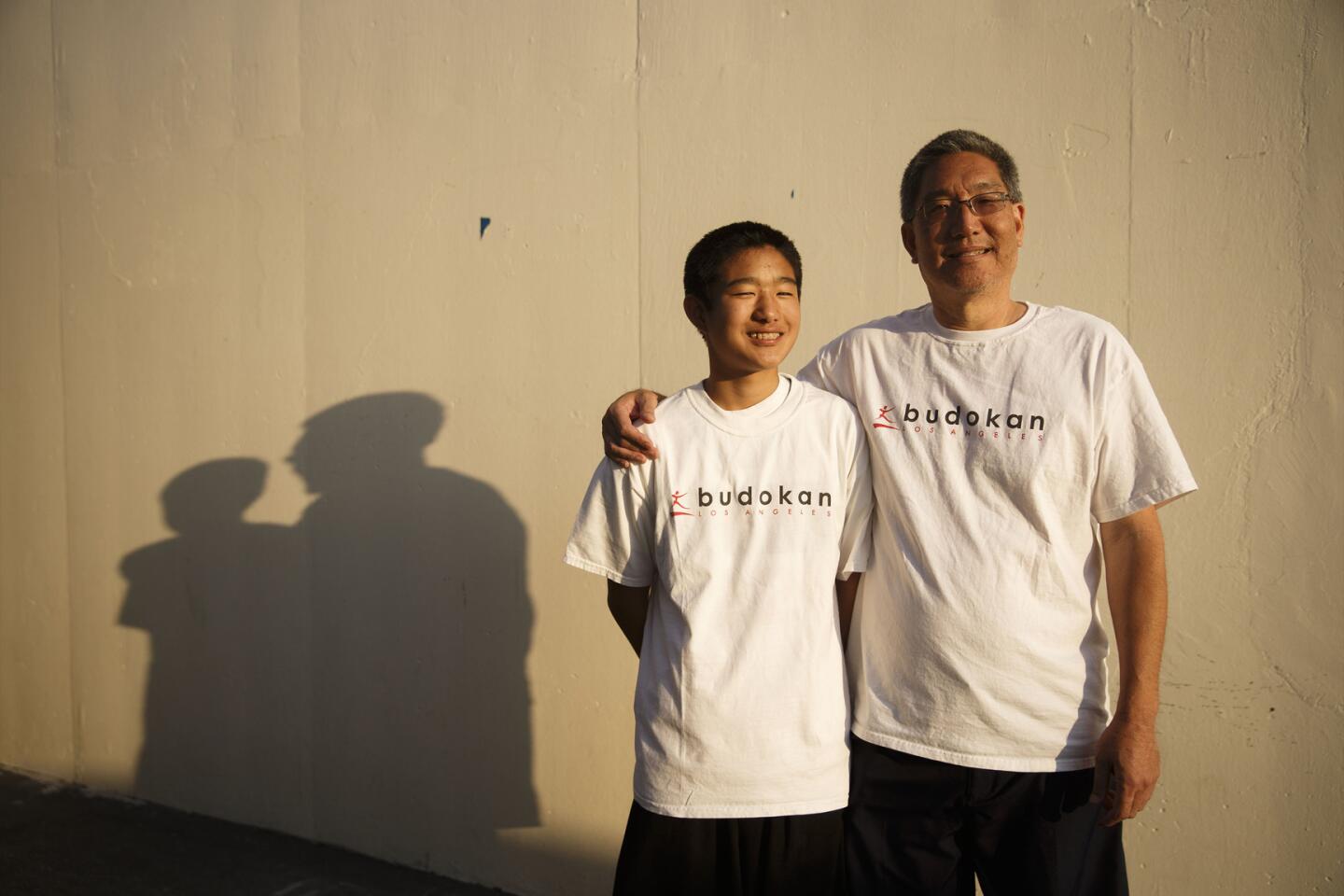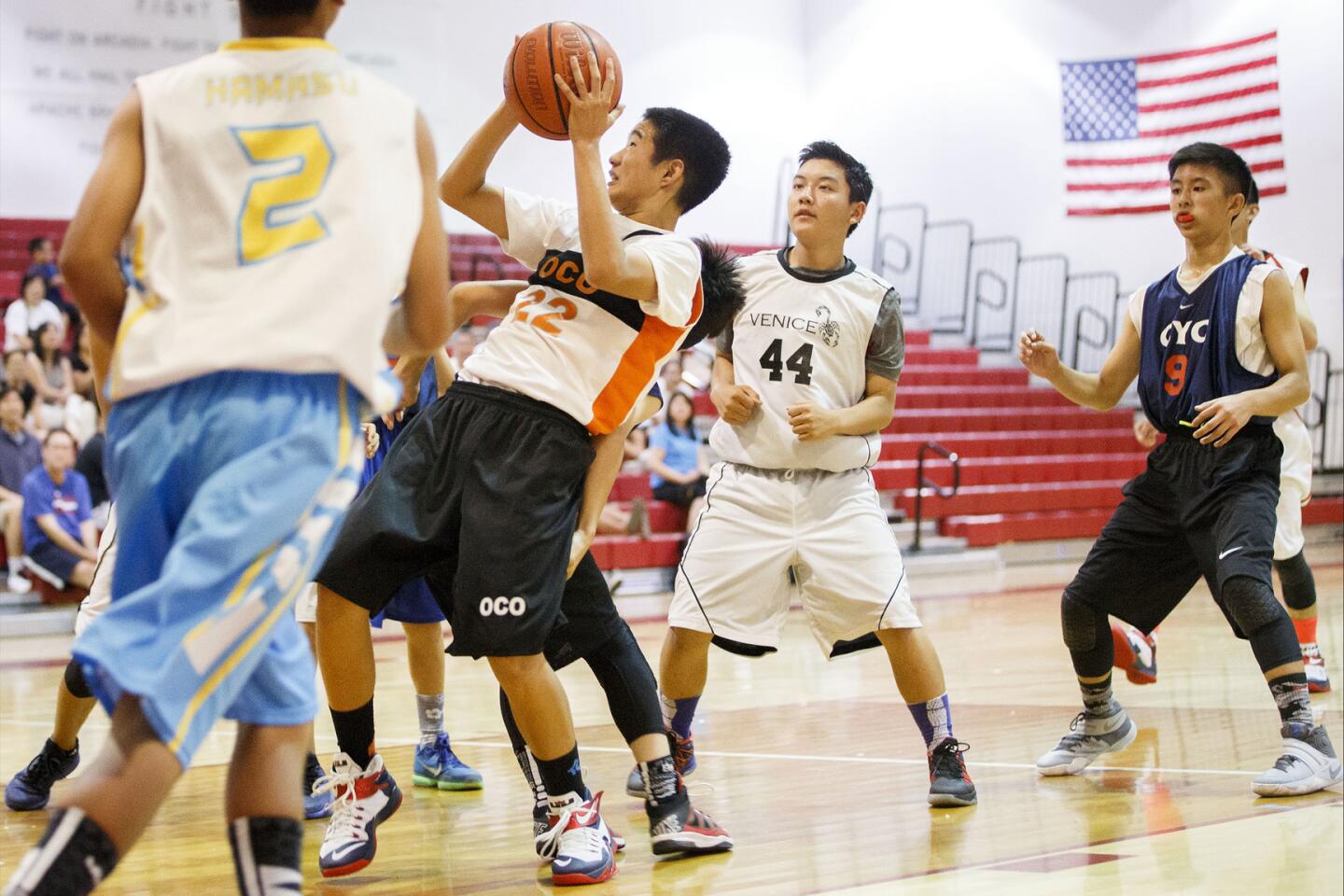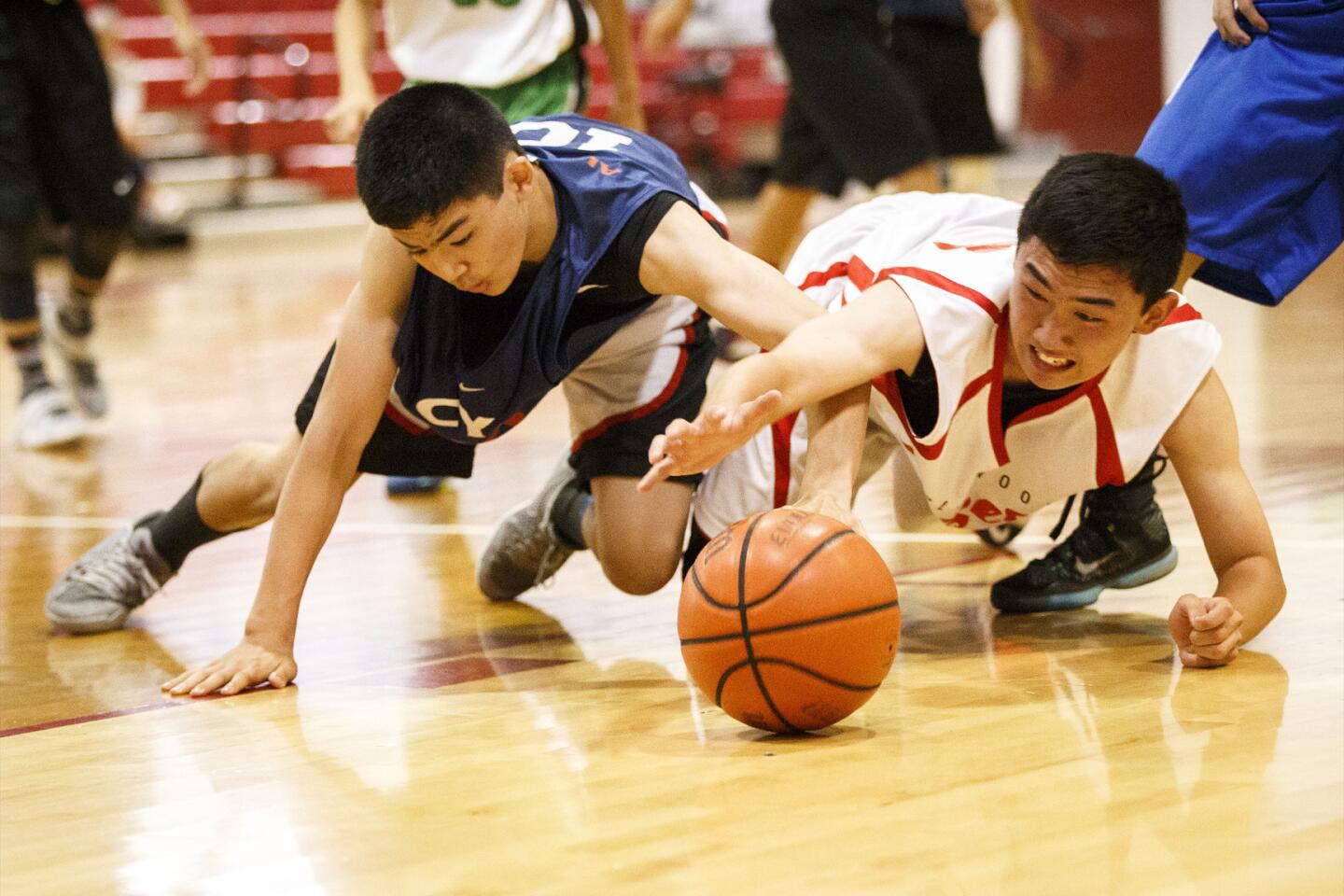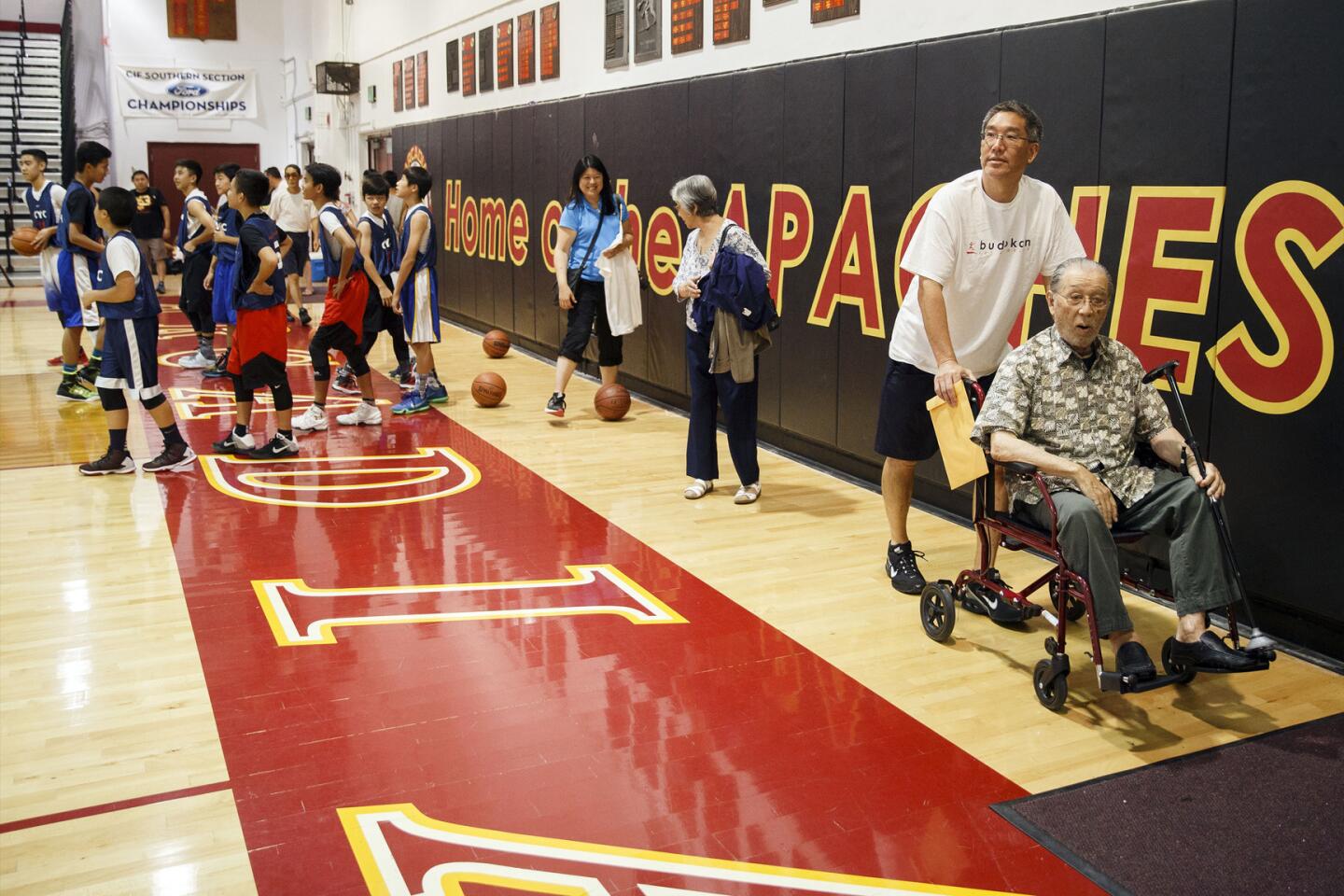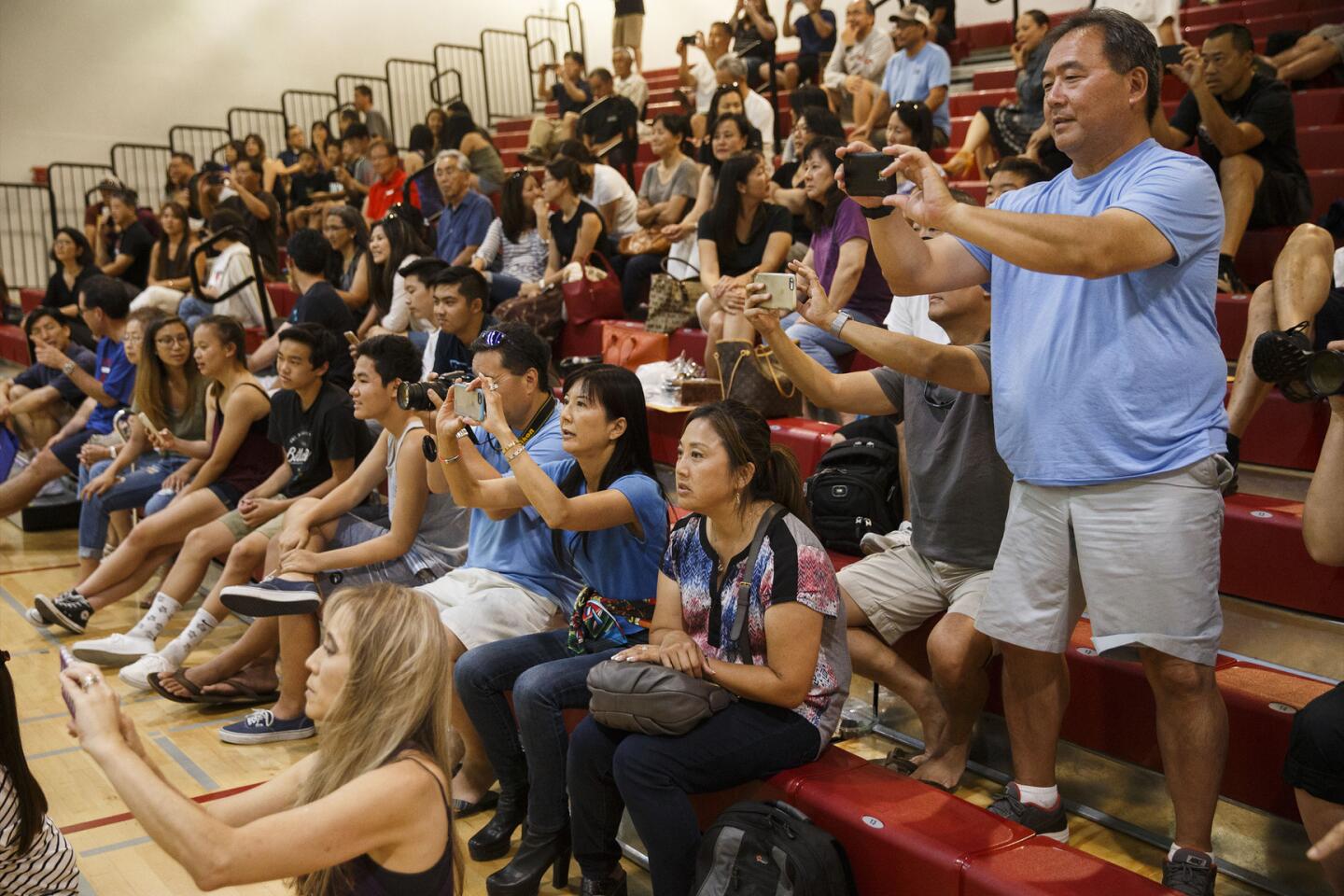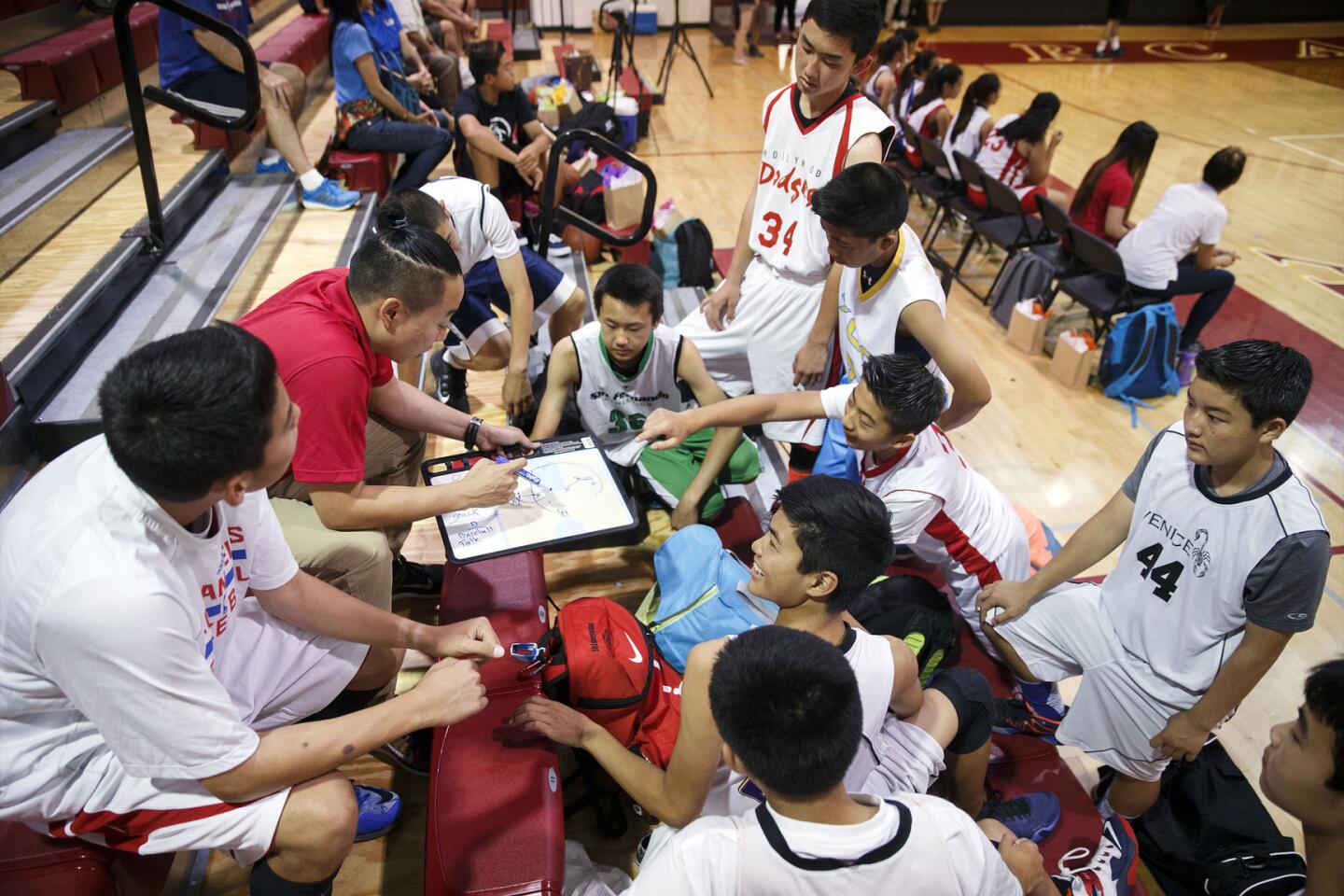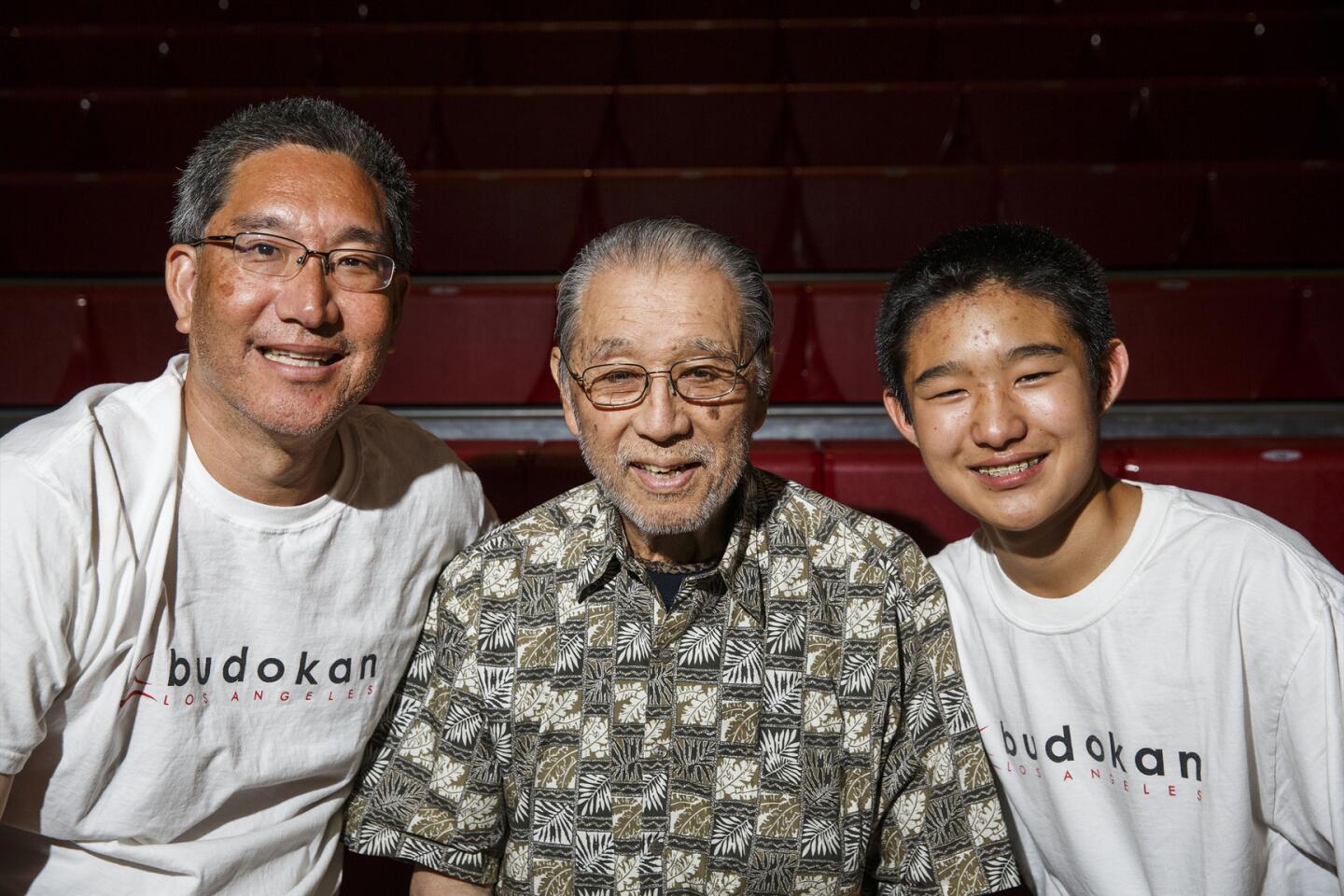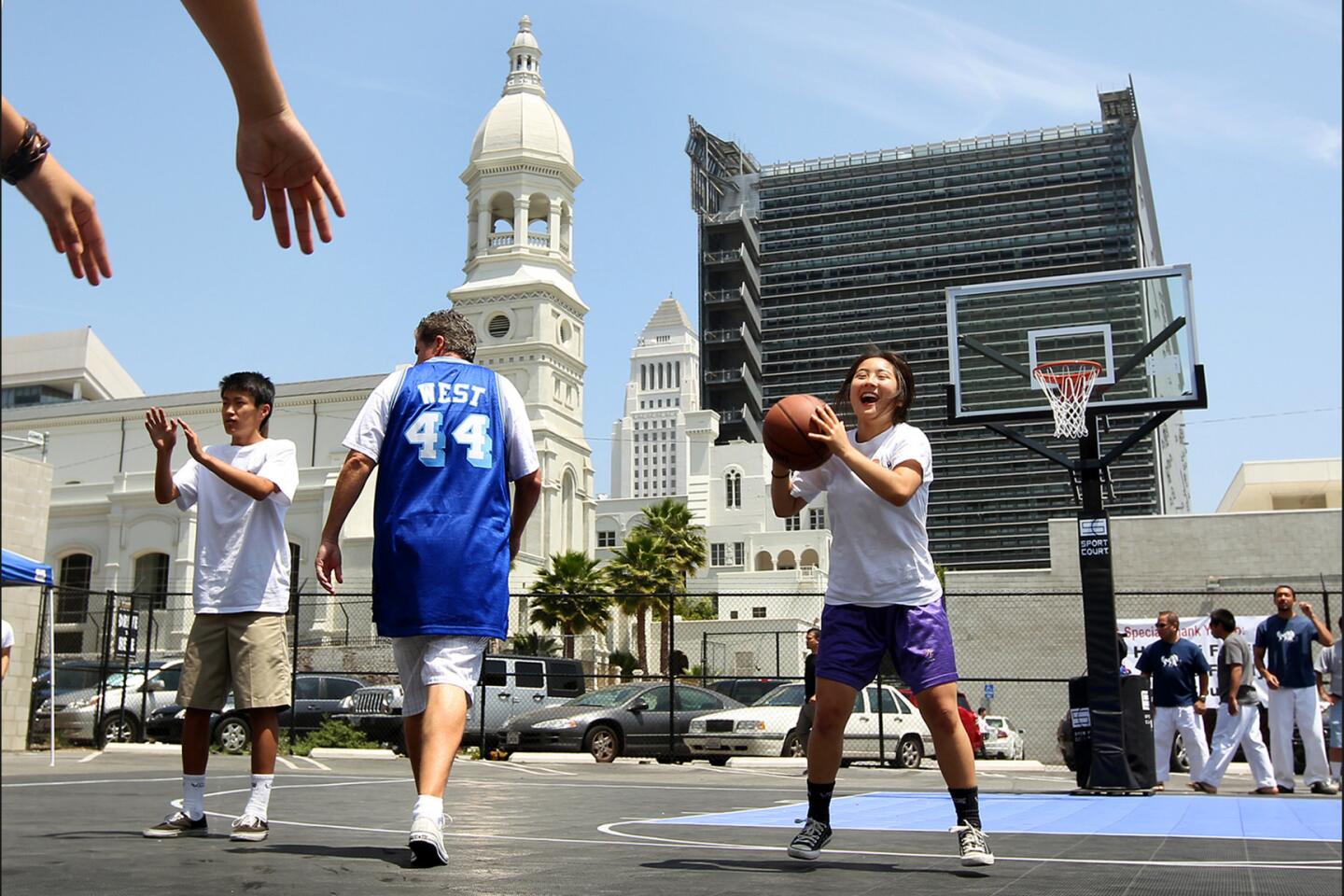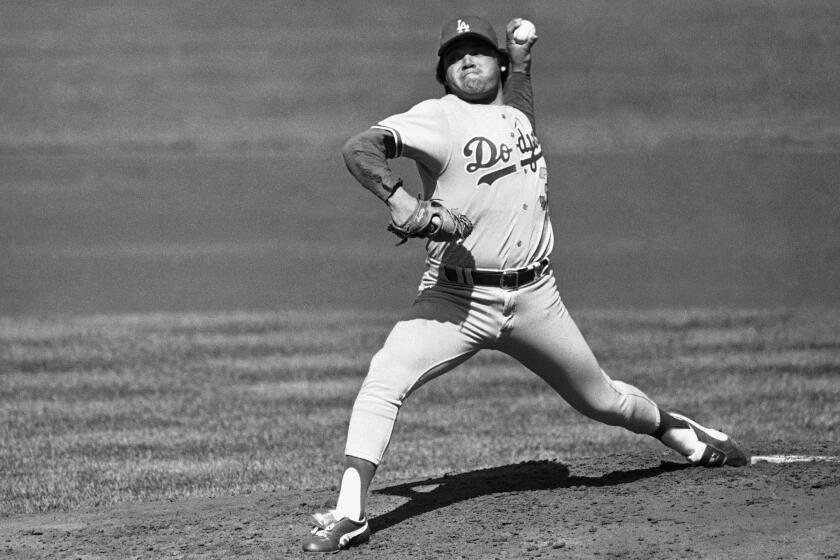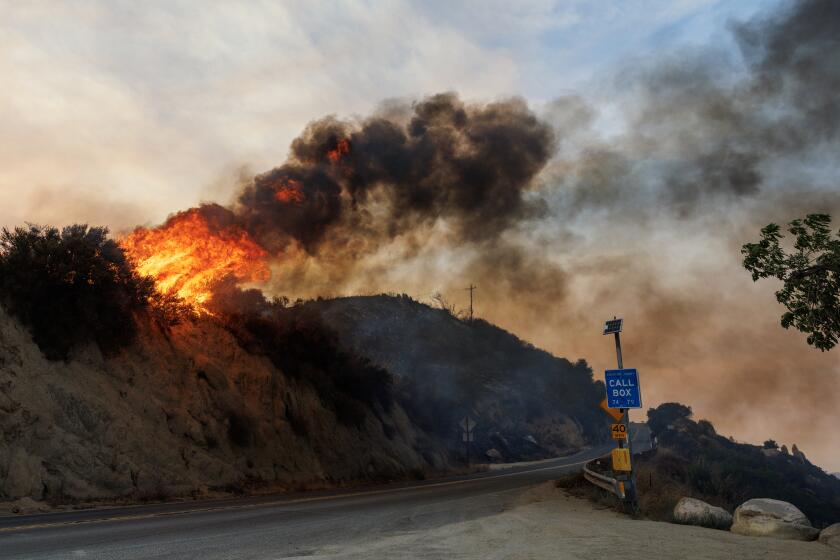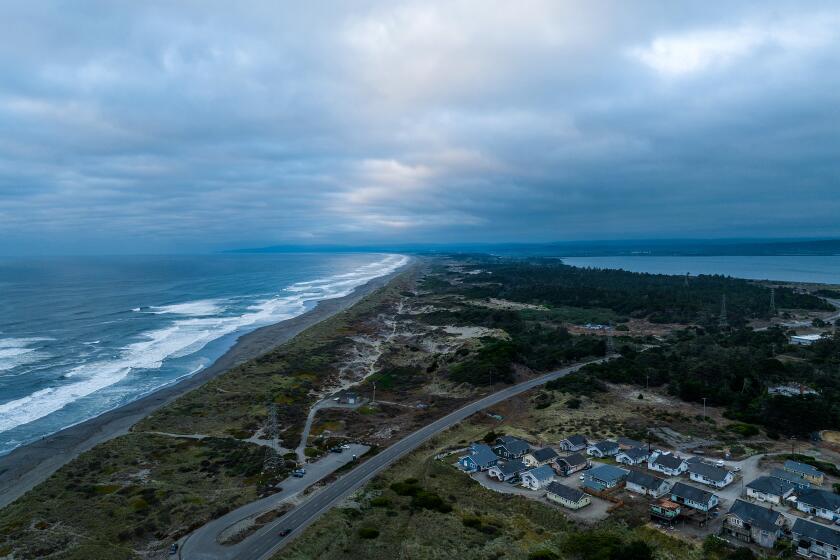Big dreams for a Little Tokyo gym project that is close to getting built
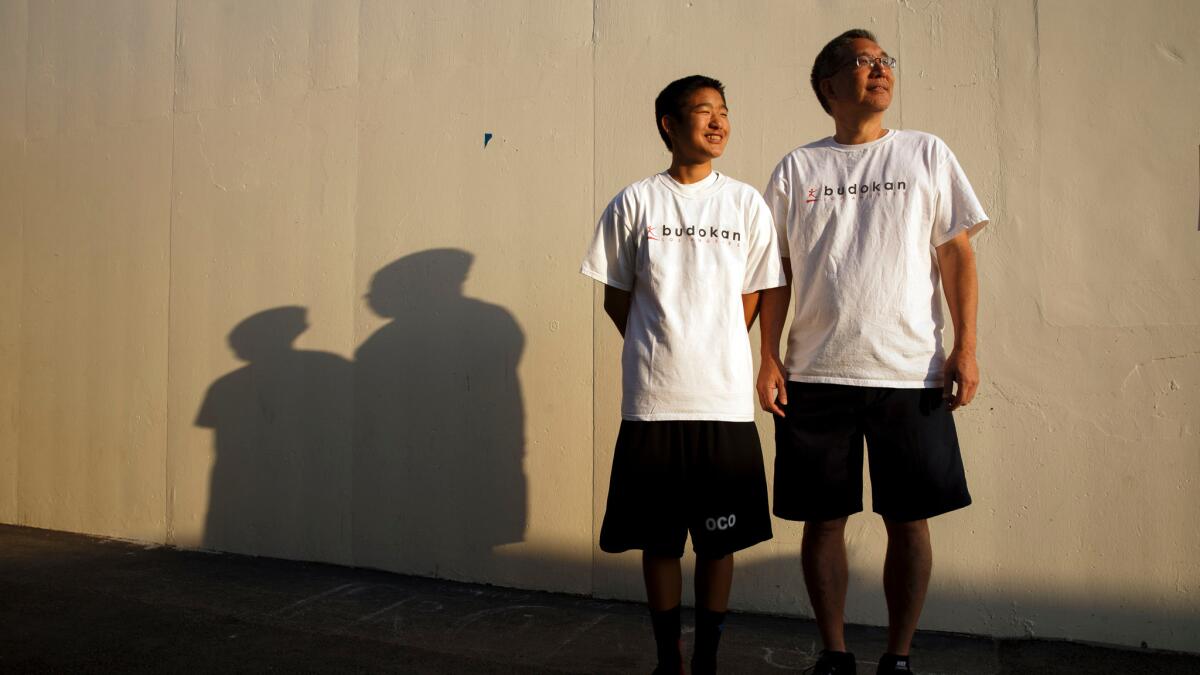
There’s no particular reason for Alan Kosaka to come to Little Tokyo. The La Palma resident can buy Japanese groceries in Costa Mesa. He can connect with other Japanese Americans at sports, cultural and volunteer events in Orange County.
So why has he worked for so many years to build a Little Tokyo sports facility?
Legacy, says this 55-year-old son of a Japanese gardener and seamstress.
The immigrant Issei generation founded Little Tokyo more than a century ago. The second-generation Nisei built many of the iconic institutions, including the national museum and cultural and community center.
But, says Kosaka, third-generation Japanese Americans such as himself have not made a lasting mark — even as rapid diversification and redevelopment are diluting the neighborhood’s ethnic character.
That’s why Kosaka, who is the vice president of engineering for a security company, is heading efforts to raise the $24 million needed for the gymnasium project. He and many others see it as the best way to pull the region’s younger Japanese Americans back to their community’s historic heart.
“Gentrification is coming in, and we’re losing a little bit of the legacy of Little Tokyo,” Kosaka said. “We saw our forefathers struggle to build it up, and we have an obligation to show them we’re giving something back.”
After two decades of work, he and other gym backers have raised or identified more than 90% of the needed money. They’re pinning down final design details for the 24,000-square-foot center on city-owned land on Los Angeles and 2nd streets.
And they’ve secured the support of Los Angeles Councilman Jose Huizar, who represents the area, to extend a deadline that required organizers to break ground by Thursday. Now, they say, they’ll begin construction next spring and expect to finish in 2018.
The Los Angeles City Council on Friday unanimously approved Huizar’s motion to extend the construction deadline by two more years under the 50-year lease with the project’s sponsor, the Little Tokyo Service Center. Called Budokan of Los Angeles, the gym will include four multipurpose courts, a 63-car parking area and a side garden.
The sports center will host martial arts tournaments and games sponsored by year-round Japanese American basketball and volleyball leagues, which boast as many as 13,000 youth and adult participants. The opportunity to showcase karate, judo, kendo and other traditional Japanese martial arts is one reason that Harry Horinouchi, the consul general of Japan, hosted a briefing on the project, which led the Japan Business Assn. of Southern California to donate $30,000, said Chris Aihara, the Little Tokyo Service Center’s director of development.
The community also will share the space with the broader public. Its motto will be “Home Court for All.”
“Budokan of Los Angeles community center is the kind of high-quality, community-driven project Little Tokyo and downtown Los Angeles need,” Huizar said in a statement. “This community center represents a long-term dream of the Little Tokyo community, and I will do all I can to assist.”
Huizar helped win the project $1.5 million in Proposition K city funds. Other large grants include $5 million from the state, $1 million from the county, $1 million from the Aratani Foundation, $500,000 from the Keck Foundation and $250,000 from the Ralph M. Parsons Foundation. Federal tax credits will provide another boost.
------------
FOR THE RECORD
July 1, 5:12 p.m.: An earlier version of this story misstated the amount of the Ralph M. Parsons Foundation grant as $200,000.
------------
To raise the remaining $2 million, organizers have turned to old-fashioned community fundraising with dances, bowl-a-thons and a raffle of a 2017 Toyota Highlander Hybrid donated by Toyota Motor Corp.
Kosaka’s son, Aidan, has helped with the fundraisers. The 14-year-old said he wants to do his part to keep Little Tokyo’s cultural footprint from shrinking more, threatening the future of century-old businesses such as Fugetsudo, maker of sweet rice mochi treats.
Like his father, Aidan sees the gym as a game changer. A museum exhibit may not draw his friends to Little Tokyo, he said, but basketball definitely will. Plus, there are other perks.
“With the gym there, oh, man, we’d be going to Little Tokyo once a week if we could practice there,” Aidan said. “It would be far for us Orange County guys, but it’d be worth it just to eat. Ramen, soba, sushi, California rolls — amazing.”
More to Read
Sign up for Essential California
The most important California stories and recommendations in your inbox every morning.
You may occasionally receive promotional content from the Los Angeles Times.
